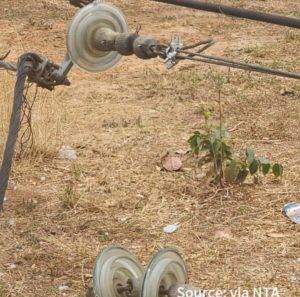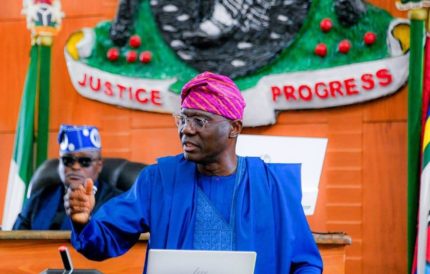The Transmission Company of Nigeria (TCN) has reported yet another act of vandalism on critical infrastructure, with the Shiroro-Katampe transmission line becoming the latest target. This incident marks the fifth occurrence of such vandalism within the months of February and March this year, posing a significant threat to the country’s power transmission network.
According to TCN, the vandalized transmission line has suffered damage to its towers, with the conductors being stolen. This malicious act not only disrupts the flow of electricity but also poses a safety risk to the surrounding communities. In response to the incident, TCN has swiftly mobilized efforts for conductor replacement, although the completion of these repairs is contingent upon the successful conclusion of security operations at the site.
Despite the setback, TCN reassures the public that the second transmission line remains fully operational, ensuring uninterrupted power supply to Abuja. This is made possible through collaboration with the Gwagwalada line, which serves the Kukwaba-Apo axis. Additionally, TCN highlights its plans to enhance wheeling capacity in the region through the Lokoja-Gwagwalada transmission line, underscoring its commitment to meeting the energy demands of Abuja and its environs.
TCN Calls for Collaboration to Combat Sabotage
Describing the vandalism as an act of sabotage, TCN calls upon security agencies and host communities to join forces in apprehending the perpetrators and safeguarding the nation’s transmission infrastructure. The recurrence of such incidents underscores the urgent need for proactive measures to prevent future attacks and ensure the reliability of the power grid.
TCN emphasizes the critical role of security cooperation in deterring acts of vandalism and protecting vital assets essential for the provision of electricity. By fostering a collaborative approach between law enforcement agencies and local communities, TCN aims to strengthen security measures and mitigate the risks posed by malicious actors.
In light of these developments, TCN urges heightened vigilance and encourages stakeholders to remain vigilant in reporting any suspicious activities near transmission facilities. By working together to combat sabotage, TCN and its partners seek to uphold the integrity of Nigeria’s power infrastructure and maintain uninterrupted electricity supply for all citizens
Coordinated Attack Targets National Power Infrastructure: Urgent Call for Decentralization
In a disturbing turn of events, Nigeria is facing a coordinated attack on its national power infrastructure, raising concerns about the stability and security of the country’s electricity supply. The attack, whose motives remain unclear, has prompted calls for drastic measures to safeguard the nation’s energy grid.
The call to abolish the National Grid and decentralize power distribution to individual states has gained traction among experts and stakeholders. Proponents argue that decentralization would not only alleviate the burden on the federal government but also enhance efficiency and resilience in the face of attacks and other disruptions. By empowering states to manage their own power infrastructure, the move aligns with existing laws and could mitigate the impact of future attacks on the national grid.
Furthermore, advocates for decentralization argue that it could help identify and address vulnerabilities in the system more effectively. With each state responsible for its own power infrastructure, localized security measures and surveillance could be implemented to deter and detect potential threats. This would not only enhance the security of the energy network but also enable more targeted responses to incidents, minimizing downtime and economic losses.
Unveiling the Motives Behind the Attacks: Calls for Stringent Security Measures
As the nation grapples with the implications of the ongoing attacks on its power infrastructure, questions abound regarding the motives of the perpetrators and their ultimate objectives. The cryptic message accompanying the attacks, questioning the reasons behind the sabotage and the desire for “good things,” has left many puzzled and concerned about the underlying agenda.
Drawing on an African proverb that warns of consequences for those who invite trouble, stakeholders are urging the government to adopt a proactive approach to address the root causes of the attacks. Civil defense officers being deployed to safeguard transmission lines, as suggested by some experts, represents a step in the right direction. However, calls for the establishment of a dedicated security and intelligence unit to combat such threats have gained prominence, highlighting the need for a more comprehensive and coordinated response.
Moreover, the insistence on harsh punishment for perpetrators reflects the growing frustration and determination to hold individuals accountable for their actions. With essential infrastructure such as street lights, traffic lights, and electricity grids falling victim to sabotage, the urgency to safeguard public assets and ensure uninterrupted services has never been greater. As Nigeria grapples with the challenge of securing its power infrastructure, the onus is on the government to implement stringent security measures and swiftly apprehend those responsible for the attacks. Only through decisive action can the nation hope to stem the tide of sabotage and safeguard its energy future.
Table of Contents
Discover more from OGM News NG
Subscribe to get the latest posts sent to your email.













